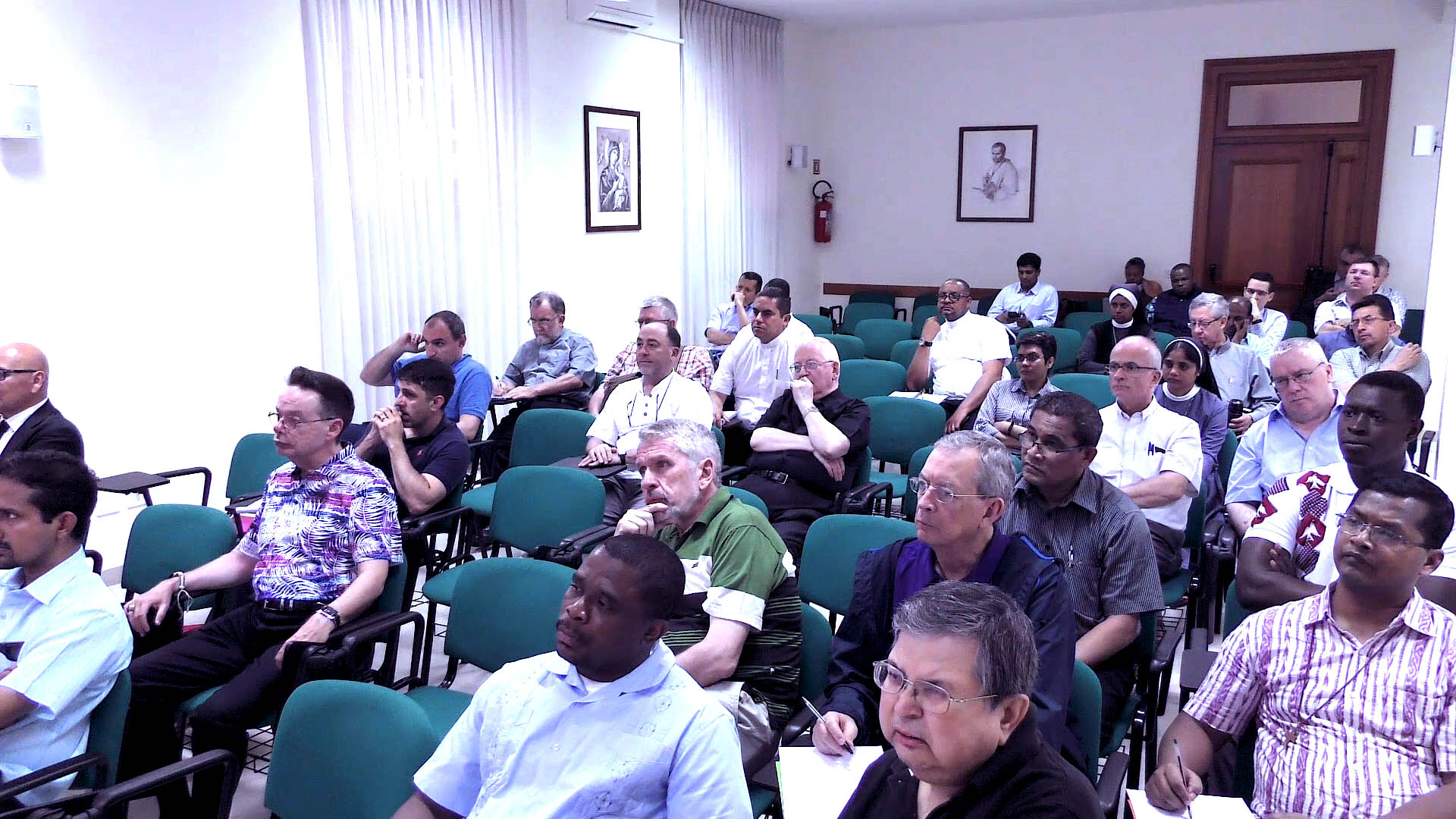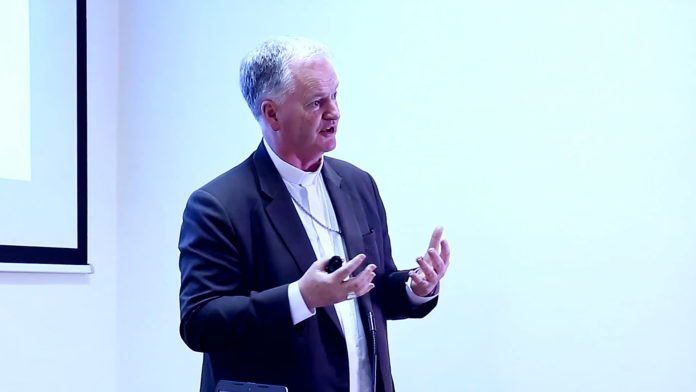(Rome, Italy) The meeting of the Commission for preparing a strategic plan for Communications and Media for the Congregation was held in Rome from 28 to 30 May 2018 at the Alphonsian Academy. A special guest speaker Mons Paul Tighe (Secretary, Pontifical Council for Culture) was invited to give a talk about the Church in Digital Culture. He spoke about the digital culture in the wider context of the Church.
Mons Paul illustrated the difference between the traditional culture that many of us are grown up with and the dominant digital culture of today that shapes the present and future generations. Though we have a language of our own religious tradition, we need to learn the language of the digital culture in order to interact with the world. One of the temptations for us is to be blind to the realities like the Social Media, thinking that all that is happening outside there is negative, but Mons. Paul said that would not help us in the future. We need to be determined to be present in the field of modern communications to create a positive culture. The digital culture, though it poses a lot of challenges, it does offer us many opportunities to reach out to the people. It is true that a lot of the digital material that we find around us is sceptical and as members of the Church, we are not good at engaging cultures with different dynamics. The most important of all his recommendations to Religious Congregations was about Formation. We need to focus on our formation system and should be able to equip the young people in formation for ministry.

 Here is an excerpt from his talk on 28th of May 2018.
Here is an excerpt from his talk on 28th of May 2018.
“Our Communication has to be rooted in our own sense of identity. Who we are as a church, what are our core messages and how we can communicate in a way that is coherent with our message.
Communication is for the Church its core business. We are founded in a sense that we need to bring Good News to the ends of the earth. If we don’t communicate well, If we are not faithful to our mission of communication, that is to bring Good News to the people, then we are failing in something that is fundamental to who we are.
The Good News that we communicate is the message that is shown to us through the life of Jesus Christ. It is about the unconditional love of God to the people, and the invitation to be the people of love. It is not simply a message in the intellectual level. But, we are inviting people to a way of life. Jesus is a person. We are calling people to a relationship with a person. This should give us the finality to how we communicate. We are also calling people into a community. So a lot of our strategies on communications have to be focused on the importance of digital as a point of contact.
Sometimes we are a church that steps back and analyze what is happening in the world. In the Digital environment, it is important to realize that we are being changed by what is happening in the digital culture. We need to think how the digital platforms can help us to build the sense of being in Community, how we can use them for our internal communication. We have to build platforms that will allow leadership to have responsible memberships. It is important to think how do we work collaboratively and work in platforms that enable collaborative decision-making.
The Church is itself a community. Therefore, our dynamics, particularly among our younger members are going to be affected by how they think and understand communications. The community also has a sense of how we get the identity. Where is my sense of belonging? The digital environment poses many issues in the Church. One issue is that as a Church, as a Community, as individual and ministers we are communicating explicitly and deliberatively. We are also communicating all the time whether we realize it or not. Social media give us the special privilege to see us as a church and to understand what people think about the Church. The role of communication is so much important in the Church and for communities within the Church. We need to give more explicit attention to what we are doing. We need to see who are we trying to communicate with, what are we trying to say, and what is the feedback.
According to me, communications has two functions. One is, to exchange information. But the other is the relationship. We communicate to build relationships. Social media intensify the intrinsic connection between information and relationship. It is working very strongly on the relational dimension. There are both positive and negative aspects to it.”
Click the link below to listen to the talk by Mons. Paul Tighe;






